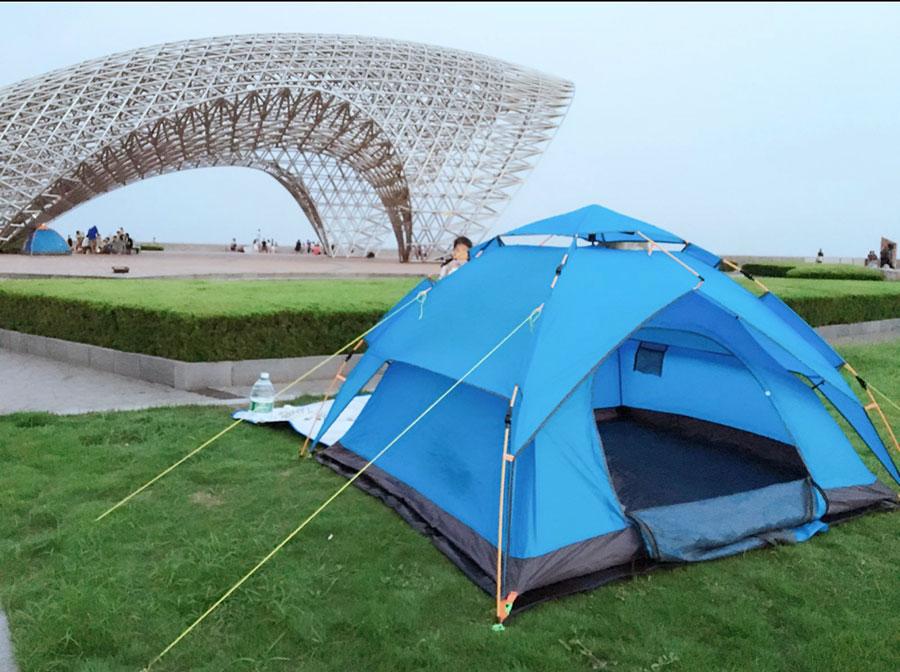
First, choose a tent. Choose one that's sturdy, durable, and weatherproof. It should also be spacious enough for you to lie down and rest comfortably. Ideally, it should be easy to set up and take down, otherwise it'll be a hassle.
A sleeping bag is also essential. Choose one with the appropriate temperature rating for the season. If it's cold, a thicker sleeping bag will keep you warm; don't let it freeze you.
Bring a moisture-proof mat. Place it inside the tent to block out moisture from the ground, allowing you to sleep dryer. Waking up soaking wet is unpleasant.
Lighting is crucial, like a flashlight or headlamp. If you need to go to the bathroom or look for something at night, you'll need light. A headlamp also frees up your hands for other tasks.
You'll also need cooking utensils, including a portable stove and pots, along with some basic cooking ingredients like instant noodles, bread, and sausages, along with drinking water—you don't want to go hungry or thirsty.
You can also bring a set of folding tables and chairs; it'll be convenient for you to sit during breaks and meals.
Also, bring plenty of trash bags to take away any camping trash—it's good for the environment.
Don't forget your personal hygiene items either: a towel, toothbrush, and toothpaste for easy washing, and insect repellent—there are many mosquitoes out in the wild, so spraying it can help prevent bites.
You'll also want to bring a power bank to charge your phone and other electronic devices, so you can communicate with the outside world in case of emergencies.
And, of course, a multi-purpose knife or Swiss Army knife—it'll be useful for cutting things and repairing equipment.
Pack a few extra layers of warm clothing; when the temperature drops at night, it's easier to sleep if you're dressed warmly.
It's also a good idea to bring a first aid kit with some common supplies like Band-Aids, sterile cotton balls, and cold medicine, just in case.

 English
English 





